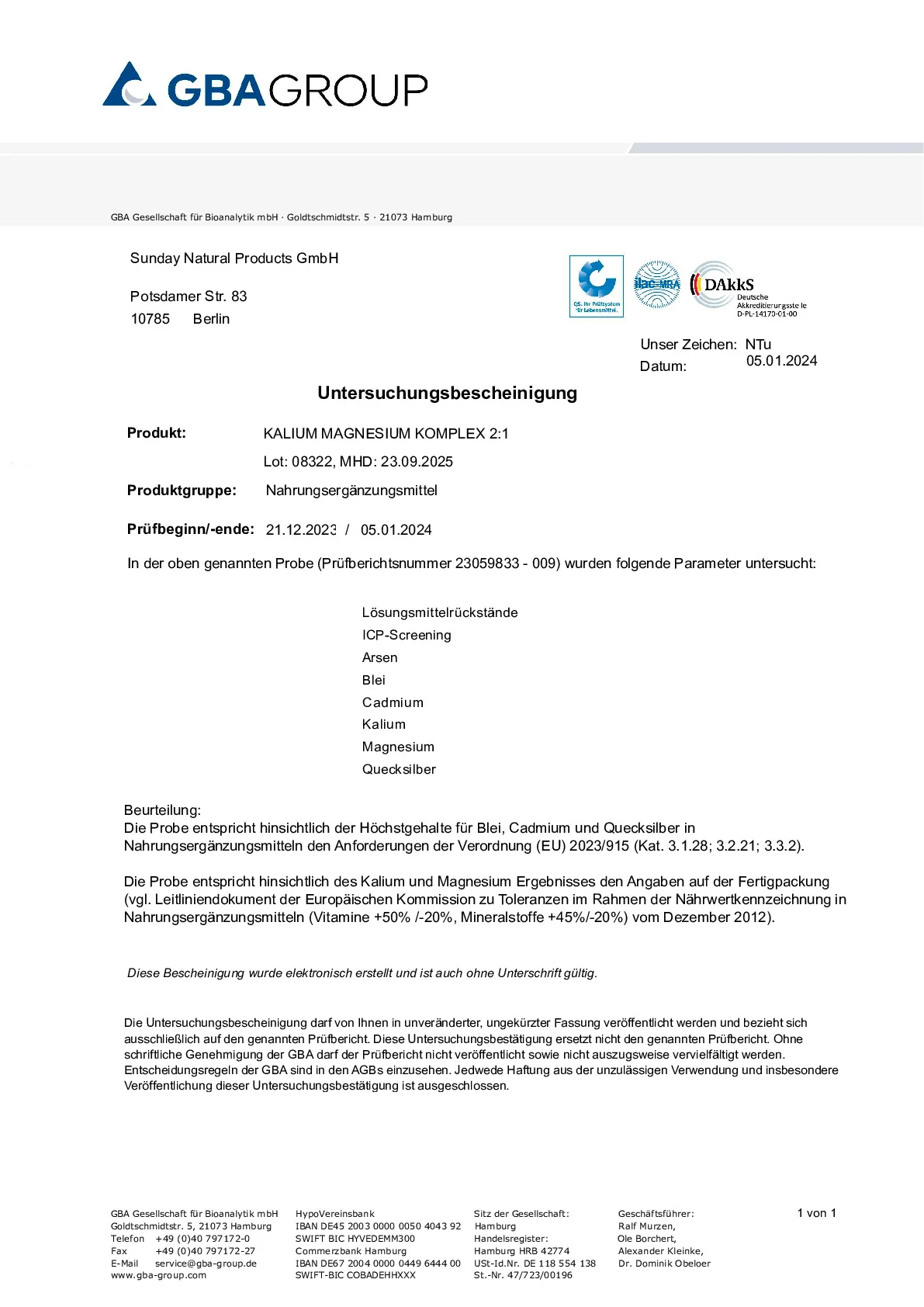Taking magnesium and potassium in a ratio of 2:1 is often considered ideal. Potassium is the third most abundant mineral in the body and is one of the essential electrolytes. Around 98% of all potassium in the human body is found intracellularly (i.e., inside the cell), while its counterpart sodium is mainly concentrated extracellularly. A balanced ratio of these two minerals forms an important basis for a large number of bodily reactions and (enzymatic) metabolic processes. However, our modern, high-salt diet easily shifts the balance towards a sodium surplus; excess sodium also favours the excretion of potassium via the kidneys. Increased physical activity and everyday stress also increase the overall need for minerals. As potassium cannot be stored in the body, we are dependent on a sufficient daily supply of the mineral in order to maintain the balance of important body systems.
Magnesium is a vital mineral that plays an important role in numerous physiological functions in the body. It is often referred to as the "miracle mineral" as it is involved in over 300 enzymatic reactions. Of particular importance for athletes is that magnesium contributes to normal energy metabolism, normal muscle function, a balance of electrolytes and normal protein synthesis.
Citrate forms are regarded as compounds with high bioavailability and a very good price/performance ratio. It is generally also suitable for people with sensitive gastrointestinal tracts and is quickly absorbed by the body.
According to the European Food Safety Authority (EFSA):
Potassium contributes to:
- normal function of the nervous system,
- normal muscle function,
- the maintenance of normal blood pressure.
Magnesium contributes to:
- reduction of tiredness and fatigue,
- electrolyte balance,
- a normal energy-yielding metabolism,
- normal functioning of the nervous system,
- normal muscle function,
- normal protein synthesis,
- normal psychological function,
- the maintenance of normal bones,
- the maintenance of normal teeth,
- cell division.





















